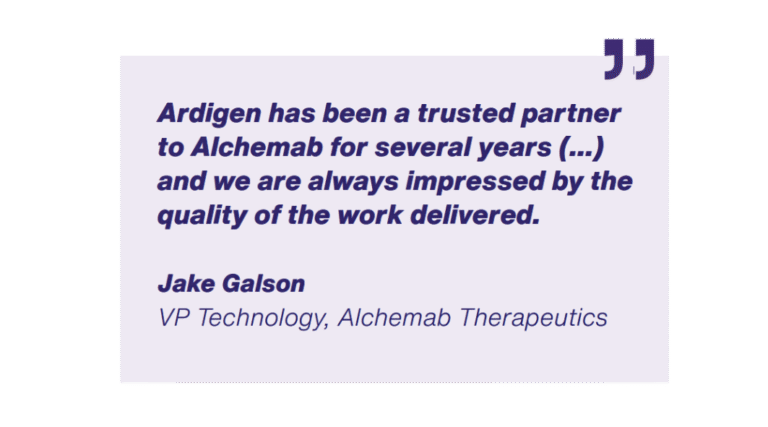
Client: Alchemab Therapeutics
Therapeutic Area: Parkinson’s Disease
The Challenge: Novelty Without a Map
Alchemab’s resilience-based discovery platform identifies drug targets by studying individuals who naturally resist disease. In Parkinson’s disease, this approach revealed a promising novel target linked to lipid metabolism and inflammation.
But innovation brings risk:
- The target was virtually absent from the public scientific domain
- No published data to rely on
- Standard validation tools were inadequate
- Alchemab needed robust evidence to determine whether this target was worth advancing into therapeutic development
In short: How do you validate a breakthrough idea when no roadmap exists?
Our Solution: Multi-Omics Validation at Scale
Ardigen designed a comprehensive multi-omics validation strategy tailored to the biology of the target.
We integrated:
Genomics, transcriptomics, proteomics and longitudinal clinical data
Patient stratification to distinguish fast vs. slow progression and resilience phenotypes
Genetic landscape mapping to reveal variants across pathways
Computational enrichment analyses to uncover coordinated, pathway-level changes
By leveraging data from the Michael J. Fox Foundation’s PPMI cohort (over 1,000 participants, multi-year follow-up) and supplementing it with curated public data, we were able to detect subtle but consistent biological signals that would otherwise remain hidden.
👉 Learn more about the science behind this project
The Gain
Ardigen’s analysis transformed a high-potential but uncertain discovery into an evidence-backed therapeutic opportunity. Between others the gains were:
Independent validation – confirmation of their novel target using world-class patient datasets
Mechanistic clarity – target linked to >40 PD-related pathways, including neuronal loss, protein aggregation, and immune dysregulation
Actionable insights – clear evidence to prioritize this candidate in their pipeline
Risk reduction – replaced uncertainty with data-driven confidence
Strategic acceleration – shortened the decision cycle for next-stage development
The Impact
This project established:
A network of lipid metabolism pathways consistently disrupted in Parkinson’s disease
Evidence that companies’ target operates within mechanisms central to disease onset and progression
A mechanistic hypothesis to guide therapeutic development and trial design
For Alchemab, the collaboration didn’t just validate a single target. It delivered:
A new lens for interpreting disease biology
Confidence to pursue resilience-inspired therapies
Momentum to move forward faster in Parkinson’s research




